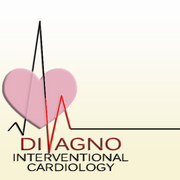5 Common Questions About Heart Disease Answered

Heart disease is an umbrella term that refers to a range of conditions that impact the heart. Often used interchangeably with the term cardiovascular disease, the forms of heart disease typically encompass narrowed or blocked blood vessels which elevate the risk of heart attack or stroke. To help you develop a better understanding of the illnesses which make up 1 in 4 deaths in the U.S., here are some commonly asked questions, answered.
FAQ About Heart Disease
How does it develop?
When plaque builds up inside of the arteries, the artery walls thicken, restricting or blocking blood flow. Because the artery walls are thickened, the supply of oxygen-rich blood to the heart is lowered. Enough built up plaque can cause rupturing and blood clots, leading to life-threatening conditions such as heart attack, chest pain, or stroke.
What are the risk factors?
Some risk factors for the disease can be controlled, while others cannot. For instance, age, sex, family history, high blood pressure, and certain diseases are contributing factors. Men are generally at greater risk, but women are more likely to develop the disease post-menopause. Other risk factors include smoking, poor diet, and physical inactivity.
Is it hereditary?
Generally, the risk of heart disease is increased if a first-degree relative has experienced a heart attack or stroke. While genetic risk factors cannot be controlled, you can still manage your risk by engaging in a healthy lifestyle. This includes maintaining a healthy diet, exercising, having your blood pressure checked regularly, and never smoking.
What are the symptoms?
The symptoms of a cardiac issue may vary depending on gender. Men are more likely to experience chest pain, while women are more prone to have shortness of breath and fatigue. Symptoms for both sexes may include chest tightness or pain and weakness in extremities. Pain may also occur in the neck, throat, back, or upper abdomen.
How is it treated?
 Treatments vary on the precise type of condition with which the patient is diagnosed. For example, if you have a heart infection, you may be prescribed antibiotics. In most other cases, treatment involves medication, lifestyle changes, and sometimes medical procedures. Quitting smoking, limiting alcohol consumption, maintaining a healthy diet, and being physically active can help prevent or control heart disease.
Treatments vary on the precise type of condition with which the patient is diagnosed. For example, if you have a heart infection, you may be prescribed antibiotics. In most other cases, treatment involves medication, lifestyle changes, and sometimes medical procedures. Quitting smoking, limiting alcohol consumption, maintaining a healthy diet, and being physically active can help prevent or control heart disease.
Receiving a heart disease diagnosis can be worrying, but the right team of specialists can help you manage your condition both now and well into the future. As North Jersey’s specialists in heart health, DiVagno Interventional Cardiology, MD, PA, in Rochelle Park is led by Dr. Leonard DiVagno, who brings more than two decades of experience in treating vascular conditions. This patient-centered practice provides treatment in Englewood Hospital Medical Center, Hackensack University Medical Center, and Holy Name Medical Center. Browse through their specialties online or call (201) 845-3535 to schedule an appointment.
About the Business


